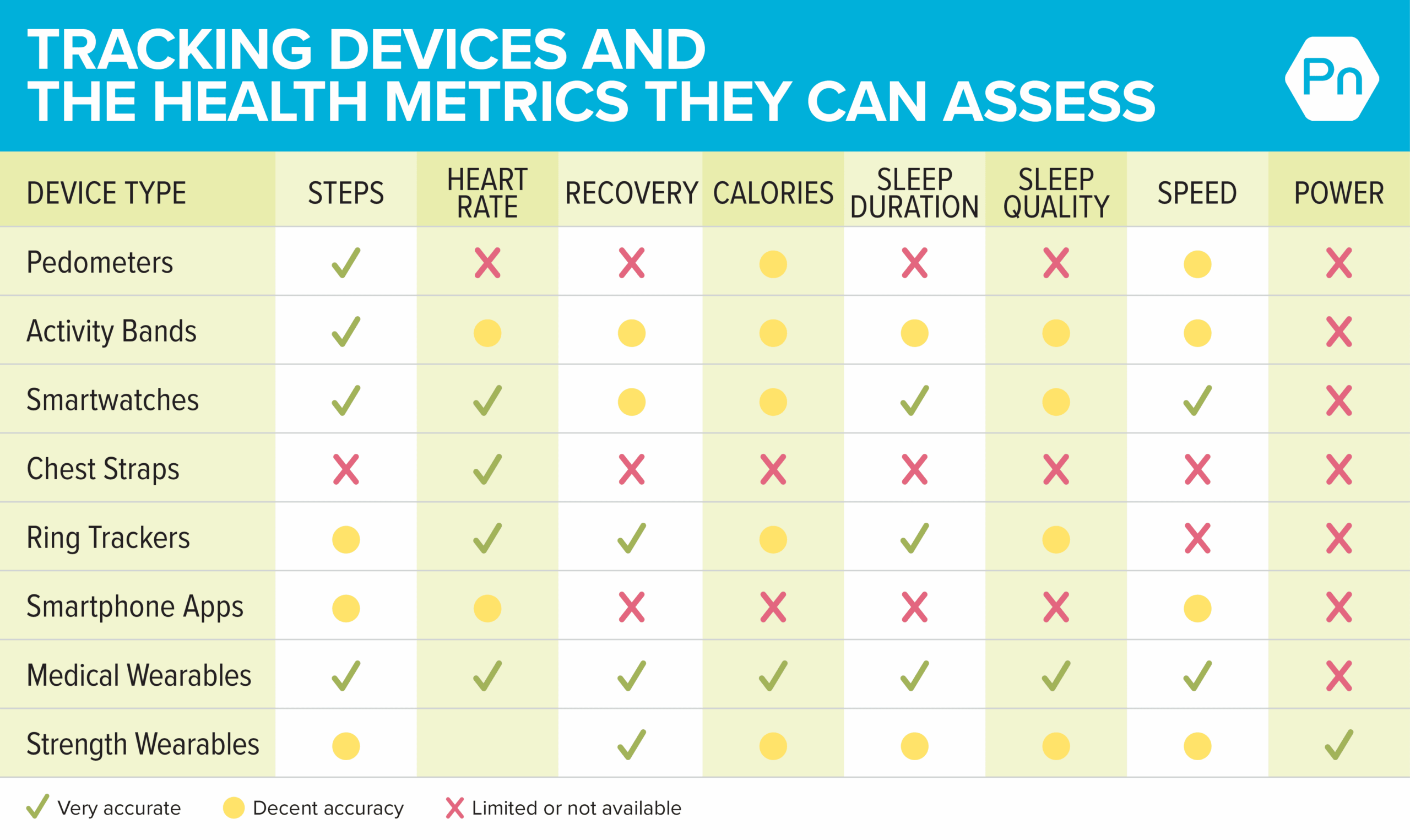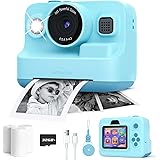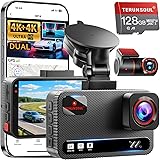The Hidden Pitfalls of Fitness Trackers: How to Boost Your Performance Without Losing Yourself in the Data
Remember when our ancestors gauged their well-being by how their stomach growled or how heavy their legs felt after a hunt? Fast forward to today, and instead of listening to our bodies, many of us glance at a glowing screen strapped to our wrists, hoping it tells the whole story. It’s wild—this sleek tech in our lives can track everything from heart rates to number of steps to sleep quality. Sometimes, it’s like having a mini doctor with you 24/7. But here’s the kicker: while these gadgets can brilliantly bridge the gap between how we feel and what’s actually happening inside us, they also remind us just how often our own perceptions can lead us astray. I mean, take a buddy of mine who swore he was sticking to his calorie budget—until a surprise 500 extra calories from barbecue sauce popped up on his tracker. Oops. Sure, some people, like Ben Johnson, the Canadian sprinter who could pretty much nail his 100-meter sprint time to the tenth of a second without any device, are amazing at self-assessment. But most of us? Not so much. So the big question looms: just how good are you at reading yourself? And more intriguingly, can tech be a wise sidekick rather than a distraction, helping you make smarter decisions about your health? Let’s unpack this curious blend of ancient instincts and modern gadgets—dive into the accuracy of these trackers, explore when tracking lifts us up or drags us down, and uncover ways to tune into your own body’s signals more precisely. Ready? Let’s get into it.
While our ancestors relied on their senses to assess how they were doing, increasingly, we rely on gadgets.
Today, if you’re curious enough, you can measure your heart rate, your step count, your exercise intensity, and your sleep quality—sometimes all on one sleek device.
In the best cases, these devices offer a bridge between what you subjectively feel and what you can objectively measure.
This is generally a really cool and amazing thing.
Our subjective feelings and assessments matter, but they’re not always the most reliable. Us humans just aren’t particularly skilled at quantifying our experiences and behaviors with cold precision.
Take, for example, a colleague of mine. He believed he was eating within a narrow caloric window, but after careful tracking, he learned that he was putting away a bonus 500 Calories a day—in barbecue sauce.
That said, some of us are better than others.
Ben Johnson, the Canadian sprinter, was reported to have been able to call out his 100 metre time within a tenth of a second of the stopwatch readout.1
That’s outlier performance, to be clear, but it still makes you wonder:
How good are you at assessing yourself?
And, how can you improve your accuracy through the wise use of technology—like fitness trackers—to help you make better decisions about your health?
In the following article, we’ll tackle the above, plus we’ll address:
- How accurate are data trackers in the first place?
- When is tracking helpful? (And when is it not?)
- Can you train yourself to more accurately assess things by feel?
Let’s get into it.
First, how accurate are data trackers anyway?
Not all data is created equal.
Some brands produce better products than others. This is not just hardware but also the quality of their software and datasets.
Beyond that, not all things are equally easy to quantity.
For example, heart rate and step-count data are generally reliable,2 but many other types of outputs—from calories burned to movement velocity—have substantial margins for error.
The below chart shows the reliability of various tracking devices.
(If you’re curious, we cover the accuracy of various progress indicators in more detail here: Are Fitness Trackers Worth It?)
Next, when is tracking actually helpful?
The good: Tracking devices offer us more data about our behaviors and bodies than ever before.
The bad: Tracking devices offer us more data about our behaviors and bodies than ever before.
“What’s really remarkable,” says Samantha Kleinberg, a computer scientist who studies decision-making, “is that even a tiny amount of surplus information has a big negative effect on our decision-making.”3
That’s the paradox of tracking: Too little detail makes it tough to make the right decision, but so does too much. 
This can be expressed as an inverted U, with the sweet spot at the top of the curve.
Today, it’s surprisingly easy to have too much information.
Consider the analysis paralysis you feel after scanning hundreds of reviews from the various taco places in your neighborhood. (All you wanted was a decent el pastor, but now you don’t know which taqueria to pick!)
Finding just enough information to make good decisions is an art form—especially in the world of health and fitness, where it seems like everyone is trying to outdo each other when it comes to providing more science, more customization, and more complexity.
But when all that information starts to blur together with no clear path forward, what should you do?
For starters, you can ask yourself a simple question:
Does tracking increase my wellbeing and performance?
If the answer is a clear yes or no, you know what to do. (Either continue tracking as you were, or drop the gadget and walk away.)
If you’re a little fuzzy, here are three signs to watch for to help you determine if tracking is helpful—or not.
Sign #1: Tracking is decreasing your stress and validating your method(s).
When Zak’s coach raved about the benefits of zone 2 cardio, it sounded logical. But when the rubber on his running shoes hit the road, Zak second-guessed everything. Zak prided himself on his ability to grind, and simply didn’t trust that something that felt easy could also be effective.
Yet, the data didn’t lie. As the weeks went by, Zak watched his resting heart rate drop—along with his recovery time from hard runs. With that reassurance, Zak began to relax about the process—and his resting heart rate dropped further.
Zak hadn’t trusted his feelings, but he did trust the data from his heart rate monitor.
Using a tracking device enabled Zak to calibrate his own perceptions so they were more accurate and realistic.
If you’re a coach who has a client like Zak who’s high performing but doesn’t know it, tracking can help build confidence and reduce the anxiety that they’re “not good enough.”
Here, you empower them by shining a spotlight on existing performance. Expert assurance can go a long way but can also be bolstered by reliable data.
(Recently, many people have begun using continuous glucose monitors, or CGMs, in order to “optimize” their blood sugar levels. This can help “validate” certain food choices… but it can also be a waste of time. Read more: Should people without diabetes use CGMs?)
Bad omen: Tracking is increasing stress or negatively affecting performance.
Sometimes, data can stress you out without any upside—like when you receive poor scores about things beyond your control.
Take the new parent of a newborn who gets a poor sleep quality score.
Tracking has a time and a place. When scores are beyond your control or your priorities lie elsewhere, tracking can create unnecessary stress and is counterproductive.
You can always revisit tracking when circumstances or priorities change.
Sign #2: Clear feedback from data is enhancing your motivation and ability.
For a behaviour to take place, you need three things4:
- Motivation: A compelling reason or desire to take action toward achieving something. This can come from external sources (your spouse is urging you to quit smoking) or internal drives (you’ve always dreamed of running a marathon).
- Ability: You have a combination of skills, plus opportunities to express them. (For example, you know how to do a simple resistance training routine, and you have 20 minutes a day to execute it.) This may involve overcoming constraints like time, money, mental and/or physical effort, social pressures, and changes to routine.5
- Prompt: A prompt is a cue or instruction that elicits an action. (For example, when your GPS tells you to turn left, or when your restless legs “remind” you you’re due for a walk.) Critically, even with high levels of motivation and ability, you may not take action—or the right kind of action—without a prompt.
Fitness trackers shine when you’ve got plenty of motivation and ability—and just lack the prompt.
Take my client, Margaret. She used to have a glass of wine most nights, believing it helped her sleep better. Once she started wearing a sleep tracker though, she saw that her sleep quality was much poorer the nights she imbibed. Once she received this prompt—her sleep score—she adjusted her behavior.
When you highlight important data, the right choices become clearer.
When it comes to changing behaviours, sometimes all it takes is one key piece of data. As they say, “Once you see it, you can’t un-see it.”
(PN’s CEO Tim Jones used the feedback he got from various lifestyle trackers to finally reduce his genetically high cholesterol levels—and built a richer, more meaningful life in the process. Read more: How This Guy Cut His Cholesterol in Half Without Drugs)
Bad omen: Data collection is decreasing motivation or ability.
When Jan, an avid recreational cyclist, found out he could view—then demolish—the records set on local biking trails, he set to work. But as those records were destroyed, so too was his ability to ride for enjoyment. His focus on speed left him under-recovered and eventually led to burnout.
If workouts have become more about the numbers and less about technique, experience, or even enjoyment, tracking is likely no longer helpful.
Sign #3: Tracking is helping you understand yourself better.
The harder you work, the better your results.
Right?
Not necessarily.
This belief tends to get grinders like Zak into trouble because they think they’re making progress—but really they’re just getting in their own way, even inhibiting performance and recovery.
Meanwhile, there are also many people who chronically underestimate their effort and capacity, and would benefit from turning up the heat. Here, data can help us more accurately understand our own potential.
Let’s look at high-intensity interval training (HIIT) as an example. HIIT workouts alternate fixed periods of intense effort with fixed periods of rest. However, these fixed periods of rest are just estimates of recovery times.
Heart rate data can create a more individualized picture of actual recovery needs, which may be faster or slower than you expect.
Sometimes, the mind says yes but the heart says not quite yet.
A good coach does more than just simply ask for more. They also help keep clients out of the unproductive “junk volume” zone, where fatigue accumulates but performance doesn’t improve (and maybe even worsens).
By looking at real-time metrics of output, fatigue, and recovery, you can better understand yourself and your clients, and help keep everyone training and recovering efficiently.
Bad omen: Over-reliance on data is making you lose touch with your own senses.
When you become overly reliant on data, you risk losing touch with your own sense of how you feel, whether that’s hunger and fullness levels, energy and fatigue, or something else.
A relevant example is “The Great My Fitness Pal Blackout.”
In January of 2019, the calorie-tracking app (with a reported 200 million subscribers!) went down for a day. Pretty minor—unless you happened to be tracking your macro and caloric intake and waiting for the app to tell you exactly how much you could eat that day… which I was.
When the app wouldn’t load, I recognized the mild panic I felt was unhelpful. My overreliance on the app had disconnected me from my own internal signals, and without it, I felt adrift. Since then, I’ve shifted my focus to how energetic I feel and one of the oldest tracking technologies available: the mirror.
(If you feel like you’re lost without your besties—your phone and your apps—there’s a name for that. There are also ways to develop a healthier relationship with your tech. Read more: What is nomophobia?)
3 ways to use fitness trackers to help you make more accurate self-assessments
Before we get to how to do the above, let’s talk about why assessing things by feel can be so important.
Whether it’s body fat percentage or movement speed, even supremely motivated and capable clients will experience diminishing objective results from their training.
The scale stops dropping, the number of plates you’re able to load on the bar plateaus, or—gasp—your race time even regresses.
Motivation based purely on progress or other extrinsic goals6 will fall away during these times.
However, exercisers who focus on feelings of mindfulness7, mastery, meaning8, and success9 develop a more resilient practice. They also enjoy the process more, whether that’s the process of running, lifting, winding down for a good night’s sleep, or just enjoying a meal.
So, although objective data can provide essential feedback and guidance, you’ll only reap the full benefits of your practice—that is, enjoyment and results—if you maintain connection with your felt experience.
And good news: You can actually use fitness trackers to calibrate and even improve your ability to accurately sense what’s happening in your body.
Here are three ways to do it.
1. Check in with yourself before you check the data.
Can you imagine asking someone how their vacation was and then waiting for them to look at their photos to be able to answer? That’s what it’s like when you rely purely on external data about your own experience.
Whatever the metric—how far you biked, how many calories you consumed, or how fast your heart was beating—the simplest way to work mindfully with tracker data is to pause, breathe, and then tune into the powerful (if not always accurate) prediction-making powers of your brain.
Once you’ve checked in with yourself, you can calibrate your self-assessment by comparing the detailed (if not always accurate) outputs of your fitness tracker.
Over time, you may be able to narrow the gap between two.
(Note: Don’t forget to regularly update your app. Algorithms and data sets are regularly adjusted for better predictive accuracy.)
2. Develop mental shortcuts that can occasionally stand in for objective measures.
The coaches I work with regularly ask people to estimate the boundaries of their strength (such as how many reps they can do at a given weight until failure).
Novices are often terrible at estimating this—and regularly off the mark by five or more reps. However, the use of objective trackers can help calibrate their understanding, and most people can reduce their margin of error dramatically.
In theory, you might use fancy tools like accelerometers or blood lactate measurements, but our coaches just ask, “For a million dollars a rep, how many more reps do you think you could do?”
Though there’s nothing objective about this question, most clients are able to use the prompt as a kind of shortcut to understand maximal effort. (After all, that last rep may be worth seven figures!)
The question also leverages the rate of perceived exertion (RPE)—your perception of how hard you’re working—which is one of the most validated sensory-driven approaches.
Not everyone is automatically good at estimating RPE, but most people can improve their skills by mapping their felt experience with occasional calibration with objective data.
3. Keep developing your ability to dial into your senses.
Trackers have components like accelerometers, GPS, and gyroscopes to sense data about speed, distance, and more.
But humans are no slouches either.
We have…
- Mechanoreceptors that respond to pressure, vibration, and the joint angles change
- A vestibular system that monitors balance and angle changes
- Proprioceptors that clock the speed and rate of length-change of muscle spindles
- Thermoreceptors that register register warming or cooling
- Chemoreceptors that detect chemical changes, such as scent or taste, as well as changes in the bloodstream
- Nociceptors—part of the body’s alarm system—that sense threat and send signals of potential harm or distress
And that’s only a partial list.
You have access to an incredibly rich network of sensory information—something that technology cannot begin to touch.
All of this information is fed into the powerful pattern-recognition machine of your nervous system.
To continue honing your ability to use this rich network of sensory information, regularly check in with what and how you’re feeling.
When you learn to calibrate your own senses with objective data, you can leverage all the cool advances in wearable tech—while still keeping your own experience front and centre.
References
Click here to view the information sources referenced in this article.
If you’re a coach, or you want to be…
You can help people build sustainable nutrition and lifestyle habits that will significantly improve their physical and mental health—while you make a great living doing what you love. We’ll show you how.
If you’d like to learn more, consider the PN Level 1 Nutrition Coaching Certification. (You can enroll now at a big discount.)




















Post Comment